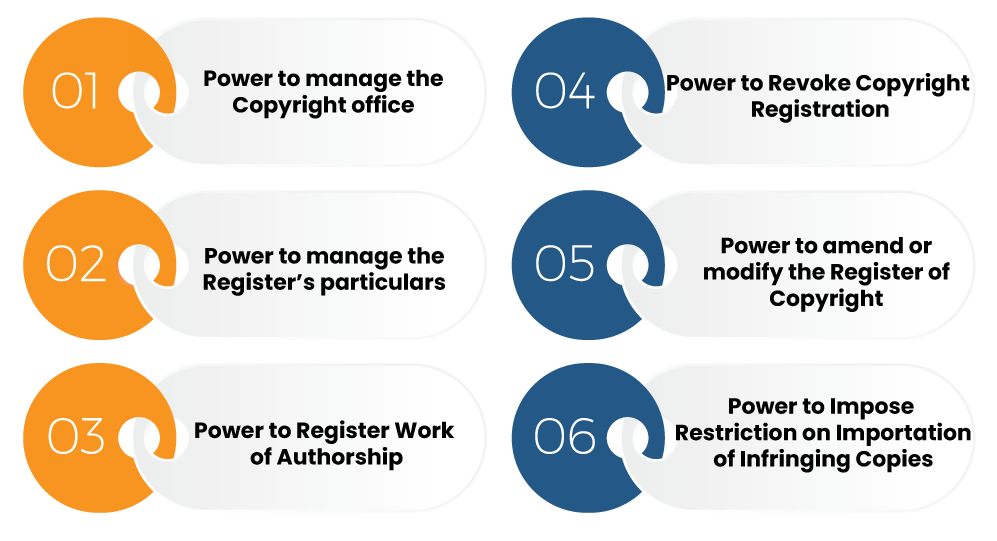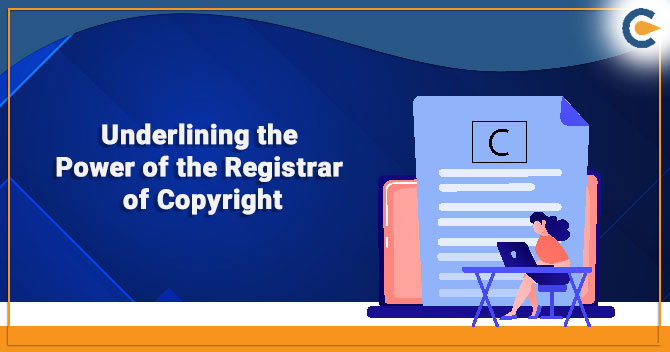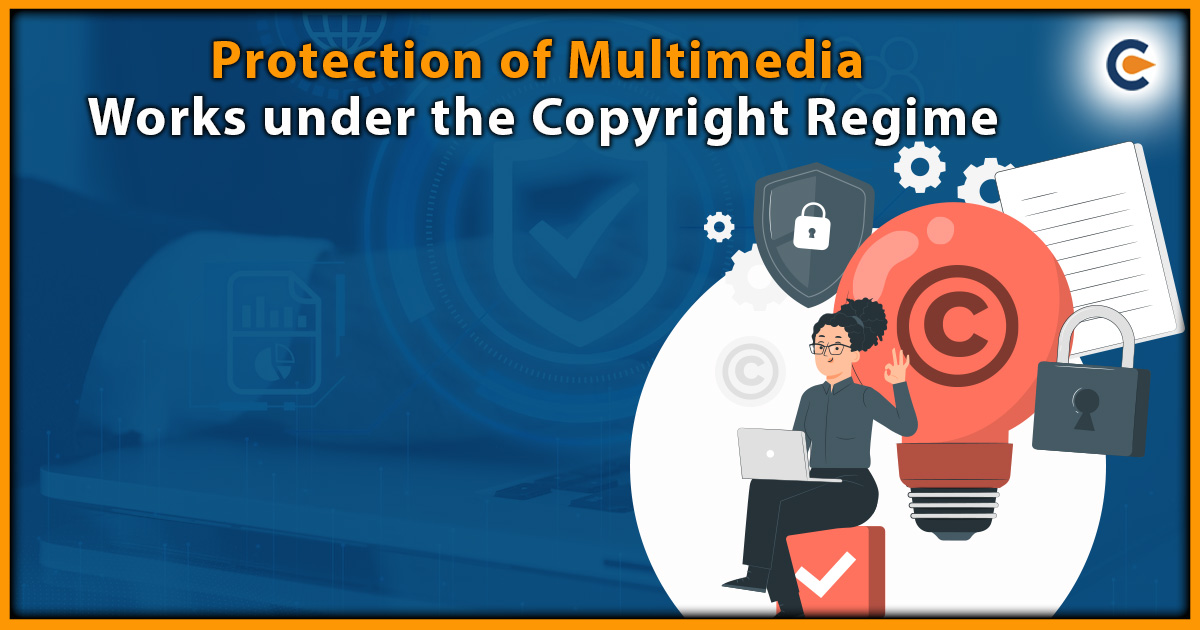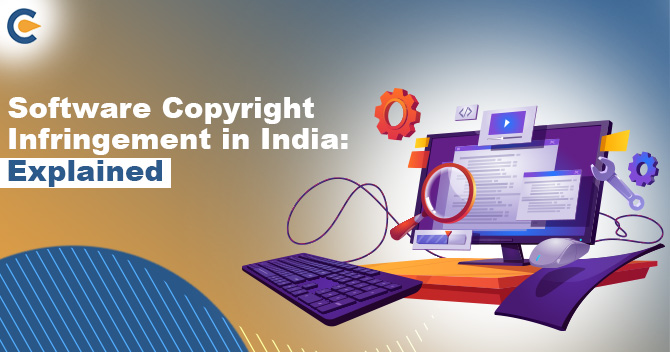Copyright registration plays a pivotal role in the overall scheme of copyright administration. Copyright generally comes to light as soon as work is created, and therefore no formality is needed for obtaining a copyright. So, copyright protection is free from any formalities. The copyright registration acts as a prima facie evidence of the details posted in the Register of Copyright. Section 44 talks about the inclusion of the details of the author who seeks copyright registration. According to this Act, the Register of Copyrights Register of Copyrights must include the author’s details like name, address, publisher, owner of the copyright. Moreover, as per Section 48 of the Act, the detail included on the Register of Copyrights shall be deemed prima facie evidence, which can be admissible as evidence in all courts of law. In this article, we will examine the role of the Registrar of copyright and his/her power.
Powers of Registrar as the Head of the Copyright Office
In the light of prevailing Copyright Act, the registrar of Copyright can exercised following powers functioning as a head of the institution.


Power to manage the Copyright Office
The Registrar of Copyright has the power supervise the Copyright Office in the light of the provisions mentioned under the Copyright Act and Central Government’s directions.
Individual obligated with a Deputy Registrar’s responsibility by the Central Government as per Section 10 (1) shall discharge under Registrar’s direction and superintendence. Any reference in this Act to the Copyright’s Registrar shall also include a reference to a Deputy Registrar of Copyrights.
Power to Manage the Register’s Particulars
The Registrar of Copyright will take care of the Register enclosing the details such as the title of the work, author’s name, address, copyright’s owners and publishers, and other information as mentioned under section 44 of the Act. It will enclose the detail mentioned in Form III. Every entry posted in the Register of Copyright ought to be published in the Official Gazette or other mediums preferred by the Registrar.
Read our article:Instructions for E-filing of Copyright Registration
Power to Register Work of Authorship
The Registrar has the authority to register the work of authorship on receipt of an application in a predetermined format along with the standard fee & after holding an enquiry as he may deem fit.
Power to Revoke Copyright Registration
The Registrar has the authority to revoke copyright registration of a work in case of an artistic work being used as a trademark, if an application lacks the inclusion of the certificate from the Registrar of Trade Marks stating the authenticity of the mark, under the Trade and Merchandise Marks Act, in the name of other person.
Power to amend or modify the Register of Copyright
The Registration of Copyright may, in the predetermined conditions, amends or modifies the Register of Copyright by:
- Rectifying any errors related to name, address or particulars, or
- Fixing other error which may come to light by an accidental slip or omission
The Registrar might amend or modify the Register’s particulars as he may deem fit or in case of an application made by an interested person for the same. The application ought to be on Form V annexed with the predetermined fee. Before alteration or amendment, a chance to manifest grounds against such actions shall be given to an individual affected by the alteration or amendment.
Any correction to the Register’s details shall be published in the Official Gazette or on other mediums as preferred by the Registrar. The Registrar will also share modifications made to the individual so affected (under Rule 17). The Registrar’s order in this context is subject to appeal to the Copyright Board.
Power to Impose Restriction on Importation of Infringing Copies
The copyright’s owner in any work or his/her authorized agent may apply to Form IV’s authority accompanied by the predetermined fee imparting details of the importation of the infringing copies related to his/her work for an order to restrict such activities. The Registrar, after scrutinizing the request, may issue an order for deterring the importation of the infringing copies available outside India.
The Registrar of Copyright or any individual appointed by him may enter any premises such as ship or dock where such copies may be located.
The Registrar or the individual appointed by him should comply with the direction of the customs[1] authorities. All the infringing copies of work will be considered to be goods enlisted in the prohibited list of Customs Act, 1962. Such copies confiscated as per the said Act will not vest in the Government but must be delivered to the copyright’s owner work (under section 53(3)).
Important Points to Ponder
- The power available to the Copyright’s Registrar is held individually or collectively with the Copyright Board as per the Act’s provisions.
- The Registrar of copyright functioning as a head of Copyright Office has the power to oversee the office as per the applicable provision and Central Government’s direction, whenever given to him.
- All the power that is considered to be conferred to the Secretary of the Board’s office can be used by the Copyright’s Registrar.
- The Copyright’s Registrar & the Copyright Board, by virtue of section 74 of the Act, held the powers of civil court when filing a suit on account of the Code of Civil Procedure, 1908.
- The registrar functioning as the head of the Copyright Office will carry out all the necessary functions under the Act’s provisions.
- Copyright Act, 1957 strongly discourages prejudice against the author by providing them ample rights to protect their work of art. Therefore, copyright registration isn’t mandatory either for obtaining copyright or for enforcing the same by an infringement suit.
Conclusion
In virtue of the above information, it can be concluded the Registrar of copyright is a center stage of decision making. From registration prerequisite to limiting the unlawful Act, the Registrar of copyright performs an array of functions to preserve the integrity of the prevailing bylaws. The Registrar of copyright has enough power at his/her disposal to curb inefficacies within the management and the registration process.
Read our article:Check out the Documents Required For the Copyright Registration











